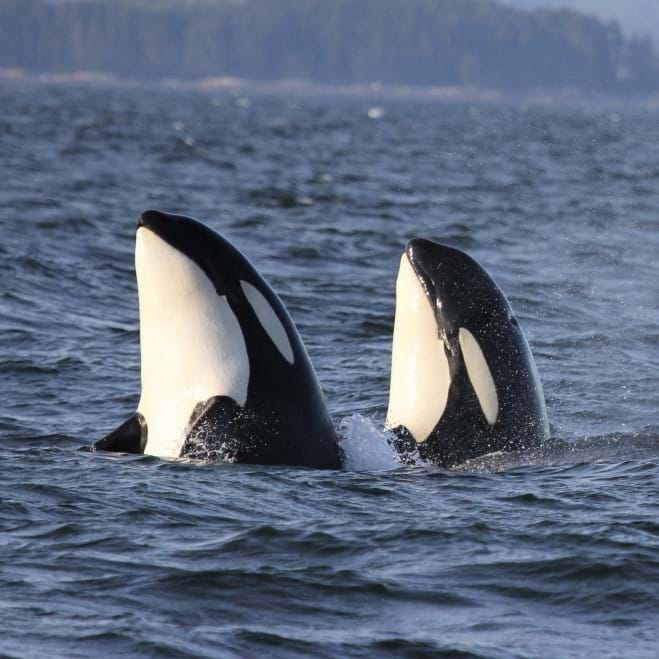
ECHO Program receives unprecedented participation despite COVID-19 challenges
The Enhancing Cetacean Habitat and Observation (ECHO) Program led by the Vancouver Fraser Port Authority achieved its highest participation rates ever this year as a result of vessel owner/operators willing to slow down and/or avoid key areas to reduce the underwater noise impacts on endangered whales. This summer’s commitment to the program exceeded all of the port authority’s goals despite the COVID-19 challenges affecting everyone.
A total of 1,803 vessel transits were reported for the voluntary slowdown in Haro Strait and Boundary Pass, achieving a record-breaking overall cumulative participation rate of 91% during the 18-week program that ran from July 2 to October 31.
During the 13 weeks of the Swiftsure Bank voluntary slowdown trial, 861 large commercial vessels transiting outbound were able to slow down to within <=1 knot through the key areas, resulting in an overall cumulative participate rate of 82%. The trial slowdown began August 1 and ended October 31.
In the Strait of Juan de Fuca, 138 tug transits spent more than half of their time in either the voluntary inshore lateral displacement zone or the outbound shipping lane to remain out of the way of whales as much as possible. Those efforts represent a record-breaking 82% participation rate during the 22 weeks of this part of the program.
A virtual celebration to acknowledge this year’s unprecedented efforts was held Dec. 1 with nearly 80 attendees, including program’s advisors, participants, partners and government representatives. The online event included a keynote address from Anna Hall, a zoologist with more than 20 years of research experience related to the marine life in the eastern North Pacific.
Over the winter into next spring, the ECHO Program team and its research partners will analyse and report on all the acoustic data collected in 2020, as well as advance the plans for 2021.